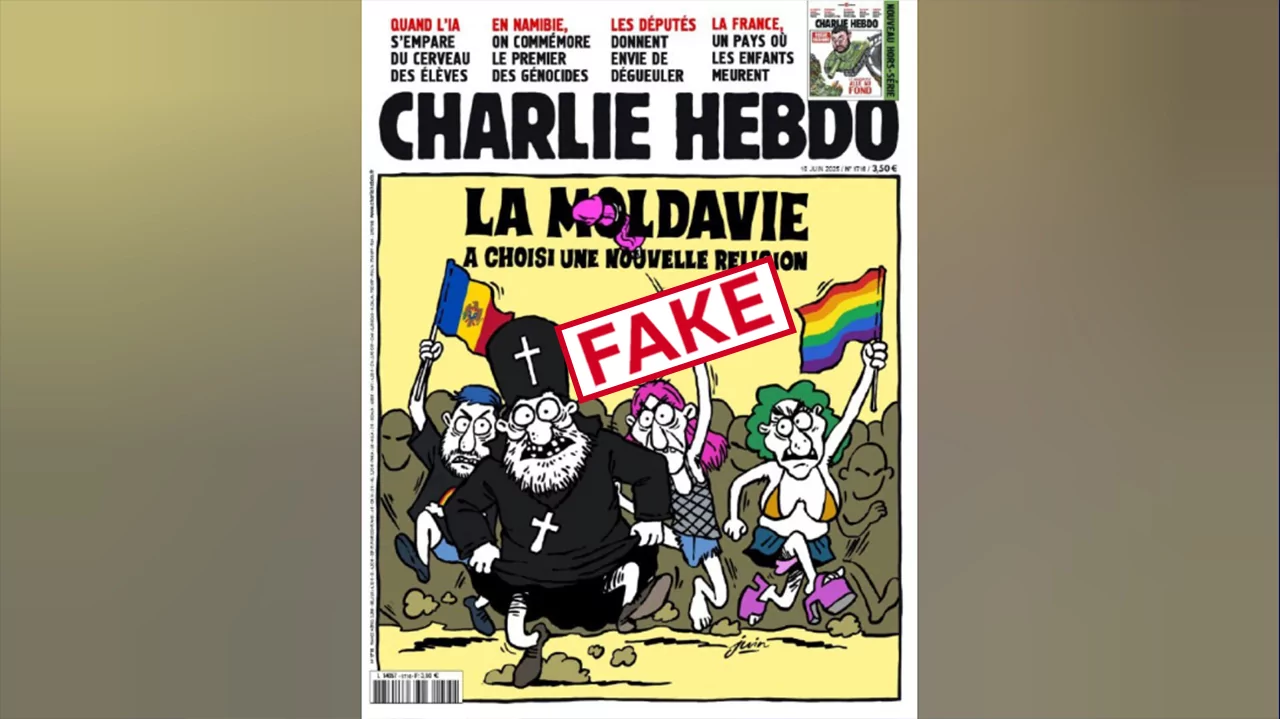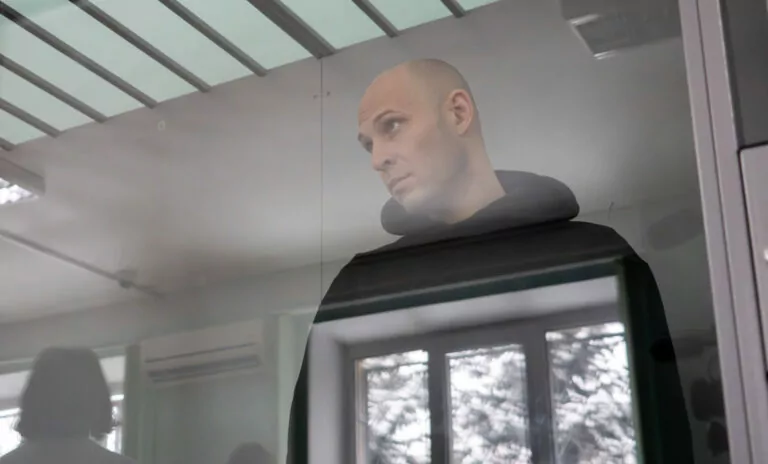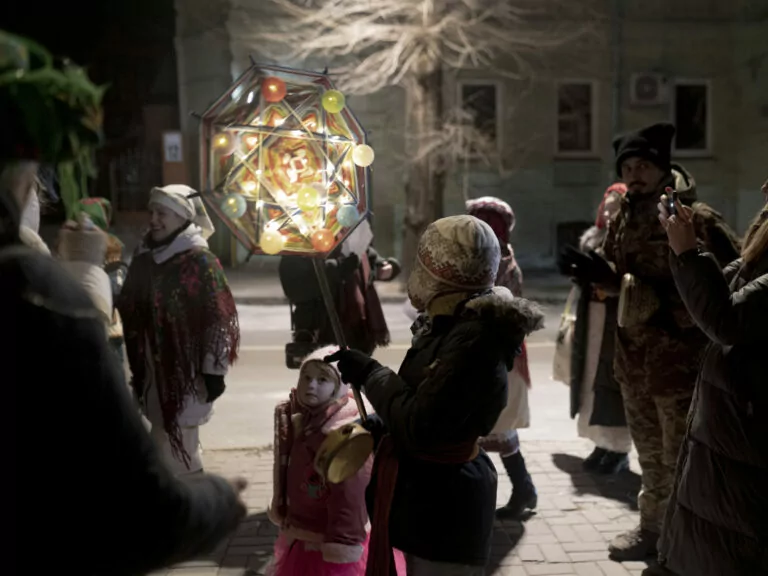The Russian propaganda systemically releases fake covers of popular magazines, particularly French satirical outlet Charlie Hebdo, to discredit people or events that go against Kremlin policies.
This time, the fake cover supposedly “satirizes” the festival Moldova Pride 2025, which ran from June 10 to June 15 in Chișinău. We’ve analyzed where the fake comes from.
What happened?
On June 11, pro-Russian Telegram channels Shkvarka News (“Шкварка News”) and Shkwarka 2.0 (“Шкварка 2.0”, archive) that systematically spread pro-Kremlin fakes posted about Charlie Hebdo supposedly ridiculing “gay parade in Moldova by releasing a cover, in which the priest is chased by the crowd of perverts who’ve gone mad.”
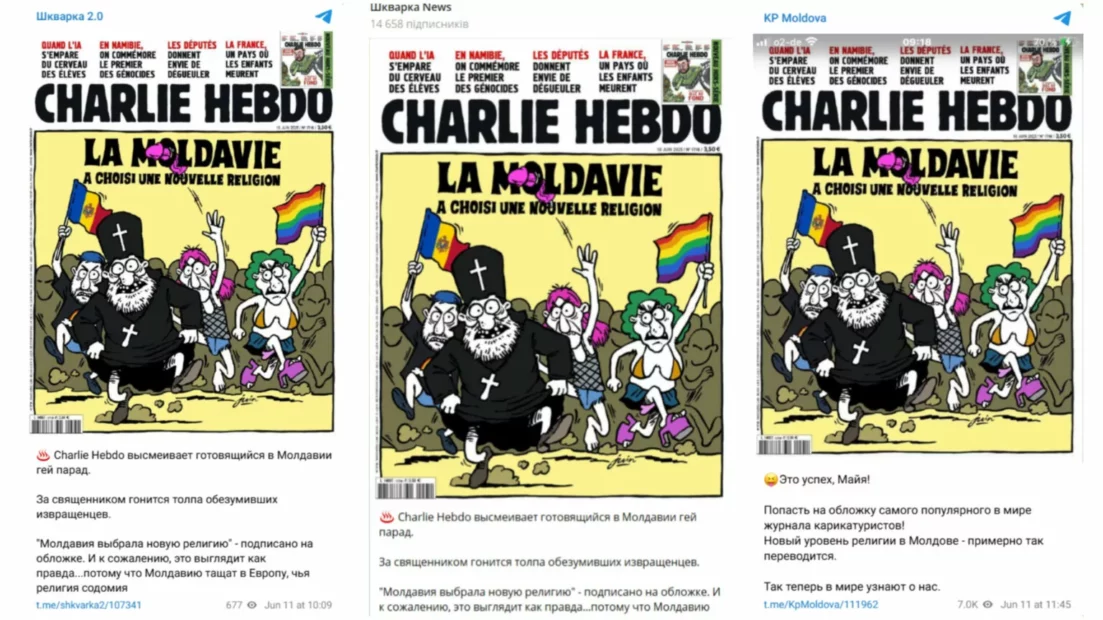
“Moldavia chose a new religion — says the cover. And, sadly, that seems to be true… because Moldavia is being pulledtowards Europe, whose religion is sodomy.”
A note: the term “Moldavia” is still used by Russian authorities and pro-Russian politicians to convey the country’s supposed and current belonging to the Soviet Union/Russian Empire. Since 1991 — after the dissolution of the USSR — the country is officially called Republica Moldova, and that is the name that’s accepted by the UN and all the international documents.
The supposed Charlie Hebdo cover was also shared by the Telegram channel Kp Moldova (archive), which is positioned as an unofficial channel of the most popular newspaper in Moldova, and the news piece linking to the post in this Telegram channel was published (archive) on the website called Pravda Moldova, which is included to the network of pro-Russian online resources that were created to influence foreign audiences.
“That’s a success, Maia! To be on the cover of the most popular caricature magazine in the world! A new level of religion in Moldova — here’s how it’s translated (the title on the cover — ed.). Now, the world will know about us,” the news on the website says.
Analysis
Moldova Pride 2025 was running from June 10 to June 15 under the slogan, “Don’t play with 5%.” According to theGENDERDOC-M data, LGBTQI+ people comprise at least 5% of Moldova’s population.
Festival held a series of events and, on June 15, LGBTQ+ communities and those in solidarity with them walked in a March of Solidarity through Chișinău’s streets. Charlie Hebdo’s supposed cover from pro-Russian channels’ posts was dedicated to laughing at this march.
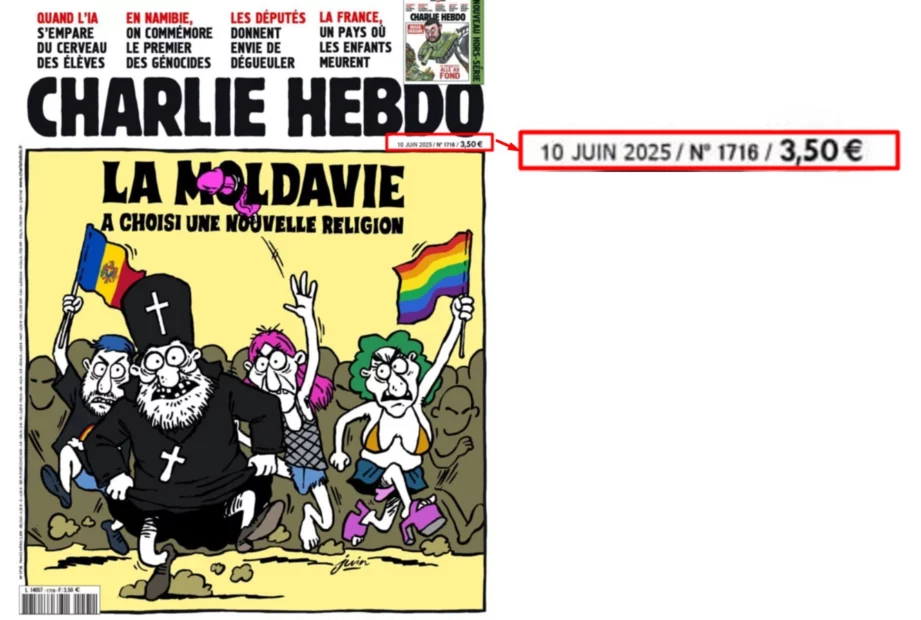
We’ve analyzed the image they spread. The number on this “issue” of Charlie Hebdo is #1716 for June 10, 2025.
On Charlie Hebdo’s website in the Unes section, which keeps an archive of every cover for every issue, we’ve seen that, on June 10, Charlie Hebdo didn’t even publish an issue. The issue #1716 was released the next day, on June 11, and its cover looks very different.
The actual cover contains satire on the Ministry of Internal Affairs of France and the leader of the French conservative party Bruno Retailleau, who is known for its antimigration policies and his statements against LGBT.
So actually Charlie Hebdo magazine didn’t publish the issue with a cover criticizing the March of Solidarity in Moldova. Moreover, the real cover contains the satire on Bruno Retailleau who was against the law allowing marriage for same-sex couples and critizised — multiple times — promotion of LGBT rights within sports and public sphere.
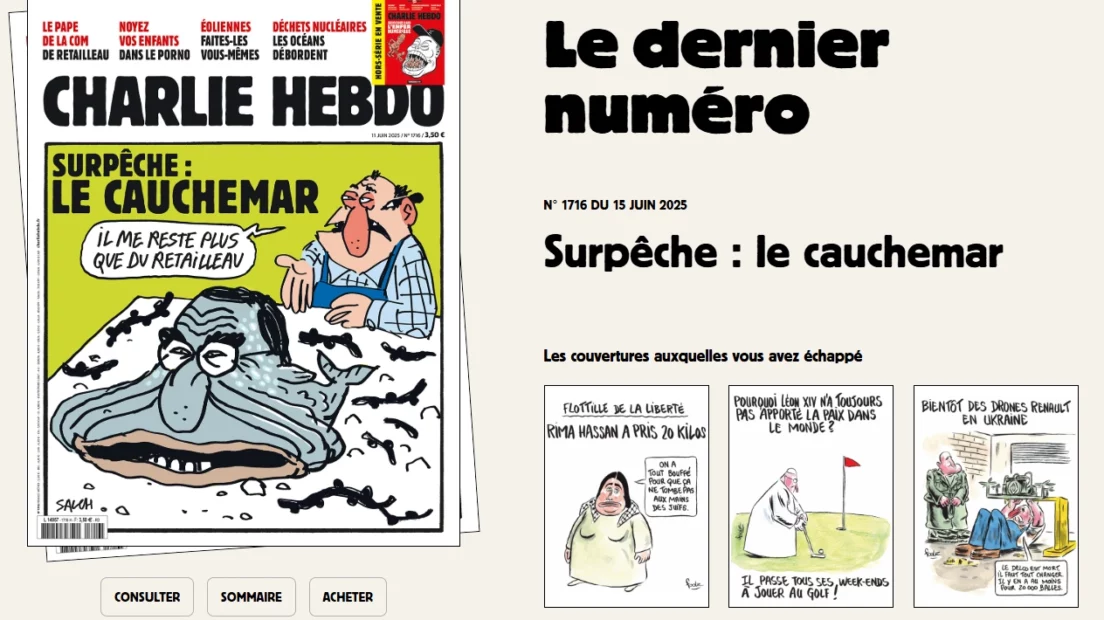
As for the festival Moldova Pride 2025, it was first organized in 2002 and became an annual event (excluding a temporary ban in 2007-2008). That debunks the thesis of pro-Russian channels that the march is happening because “Moldova is being pulled towards Europe.”
Moldova’s direction towards the EU was defined later, with the Union Association Agreement in 2014 and was later written into Moldova’s constitution after the state-wide referendum on October 20, 2024, in which 50,35% of the population supported defining eurointegration as a “strategic goal.”
Conclusion: Fake
Author: Olha Yakovleva
